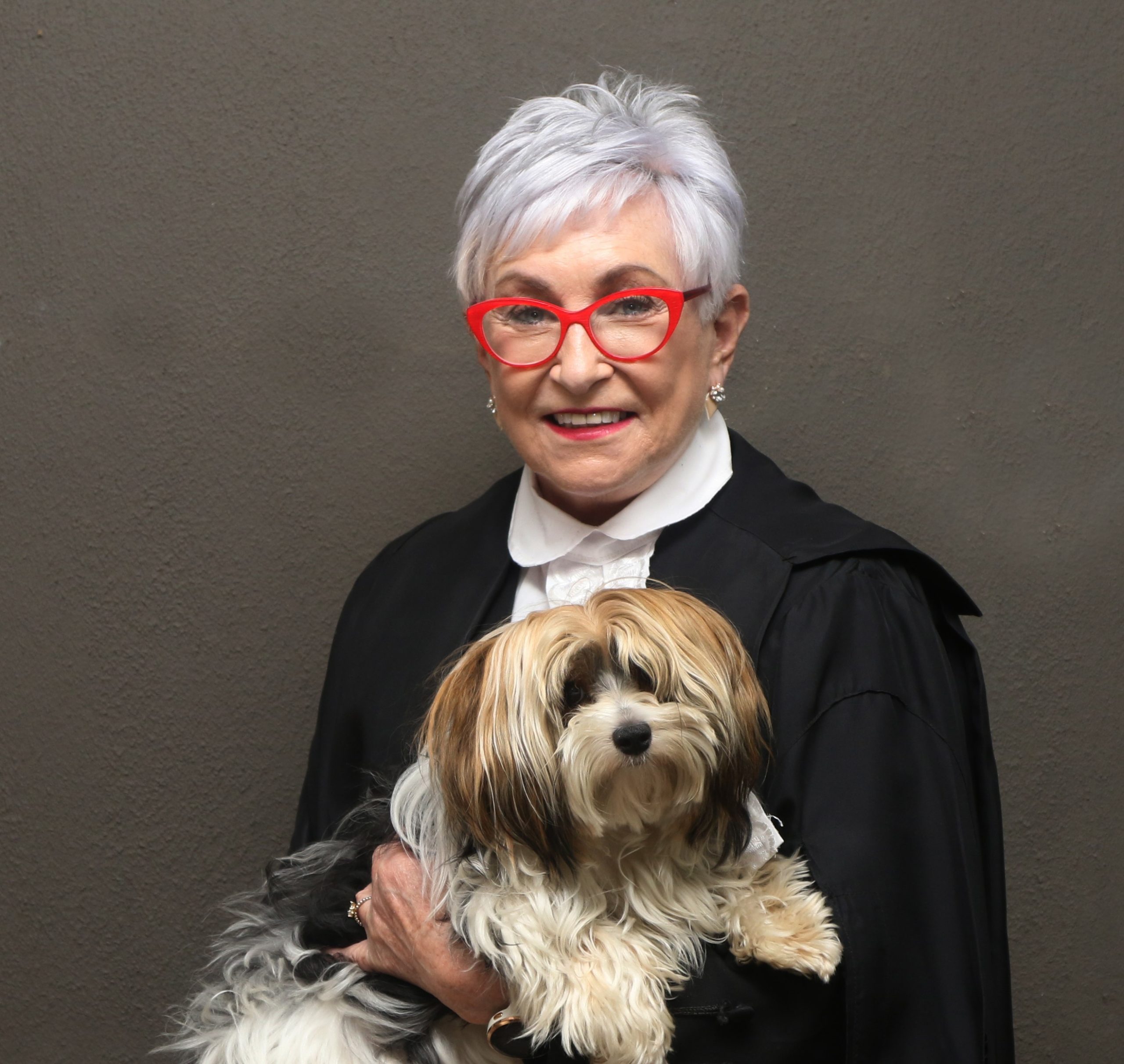
Banner

Weiner’s appointment to top court “a dream come true”
Judge Sharise Weiner described her appointment earlier this month as a judge in the Supreme Court of Appeal (SCA), the second highest court in the land, as “a dream come true”.
“It’s satisfying knowing that I’ve shattered a few glass ceilings and all my years of experience have been recognised,” Weiner told the SA Jewish Report this week.
Being appointed to the bench of the Bloemfontein-based court marks the pinnacle of her career, she said, following years of slog and robust determination to make it in a traditionally and stubbornly male dominated profession.
This is a big deal considering the odds: white, female, Jewish (not necessarily in that order) and not exactly a spring chicken – in fact the oldest member appointed to the bench.
Weiner told the SA Jewish Report that she had come a long way from her early days at the Bar in her twenties when her male peers viewed her as a “young, little blonde creature”.
Echoing a previous speech she made in 2018, she said it had been tough being one of the only females doing commercial law, and there were many times she considered throwing in the towel were it not for a few generous men who believed in her.
“I was 24 when I joined the Bar. I battled through my junior years, lucky to find a few attorneys who believed me capable of doing commercial work. It was an uphill battle, almost always having to work harder than my male counterparts,” she said.
Deputy Chief Justice, Judge Mandisa Maya, who chaired the Judicial Service Commission (JSC) interviews, described Weiner, 68, as an “experienced, hardworking, efficient judge … committed to transformation and the mentoring and training of women and young upcoming lawyers”. Yet in spite of this, she wasn’t recommended by the JSC last year, with her relatively advanced age being of concern. This was highlighted by Sylvia Lucas, African National Congress member of parliament who quipped, “You are well preserved, like wine and cheese, you seem to get better with age.”
So, when asked by Maya why the commission should change its mind a year later and recommend her, Weiner said that over the past few years, the SCA had lost 11 senior judges for various reasons (retirement being one of them) and that with her 33 years of experience at the Bar, 15 years as a silk, and coming from the busiest division in the country, she believed she had the knowledge, wisdom, and experience to benefit the SCA.
“The more experience a judge has, the more resourceful and productive they can be,” she told the JSC.
During her previous interview, Weiner cited the example of the United States Supreme Court’s octogenarian justice, Ruth Bader Ginsburg, who worked until she died in 2020 at the age of 87, still writing “scholarly judgments” to the end.
Weiner scored high on the issue of race and gender transformation, which was prioritised by the JSC.
Steadfastly committed to the development of skills, and advocacy training throughout most of her career, Weiner told the commission that though there had been positive changes, transformation had been slow in the legal profession, especially in the judiciary. She pleaded with senior colleagues to “give young women a chance”.
Lauded by commissioners for her role in training young, black female advocates and attorneys, Weiner quoted author and scholar Peggy McIntosh who said “white men are considered competent until the opposite is true, whereas blacks and females are considered incompetent until the opposite is proved”.
Weiner, a mother, grandmother, and the wife of attorney Darryl Ackerman, grew up in Johannesburg, attended Cyrildene Primary School, and matriculated at Athlone Girls’ High School. She holds a BA (1975) and an LLB (1977) from the University of the Witwatersrand. The law was a natural choice for Weiner, as justice and equality for all was something she valued deeply from a young age, having gleaned it from her ultimate role model, her late mother, Hassia Weiner, a teacher and “one of the kindest and most compassionate human beings” she’d ever known.
Her parents’ influence guided her to live by a code of ethics “core to Jewish values”, Weiner said. Moral and ethical Jewish teachings, as entrenched in the Constitution and the Bill of Rights, were foremost in her mind as she considered taking up the position of judge years ago.
Appointed to the bench in 2011, Weiner was one of the trailblazing women advocates at the Johannesburg Bar, becoming an advocate in 1978 and senior counsel for 15 years before her elevation to the bench.
She was a founding member of Lawyers for Human Rights in 1979, and vice-chairperson of the General Council of the Bar from 2000 to 2010, where her service in the cause of advocacy training as chair of the Advocacy Training Committee has been applauded by many in the profession.
Weiner was shortlisted for the position of public protector after Thuli Madonsela’s term ended in 2016.
During the JSC interviews, commissioner Carol Steinberg acknowledged Weiner’s “extraordinary contribution to women”.
“It’s sad, but not all women support women in a profession where we compete with each other,” Steinberg said. Weiner had “truly been inspirational to generations of women”.
Weiner navigated the invisible barriers to success “with a sense of humour”, she told the SA Jewish Report.
“Being able to laugh with my male counterparts and always encouraging social cohesion amongst my colleagues, junior and senior. Dinners, lunches, and workshops, where we’d gather and get to know each other were all so important.”
Apart from Weiner, of the 11 candidates who vied for one of five positions on the SCA, the commission recommended Eastern Cape High Court Judge Glenn Goosen, and Gauteng High Court Judges Piet Meyer, Keoagile Matojane, and Daisy Molefe for appointment as justices of the SCA.
Before the recommended candidates can be appointed, President Cyril Ramaphosa needs to confirm their appointment, which is a formality, said Weiner.










